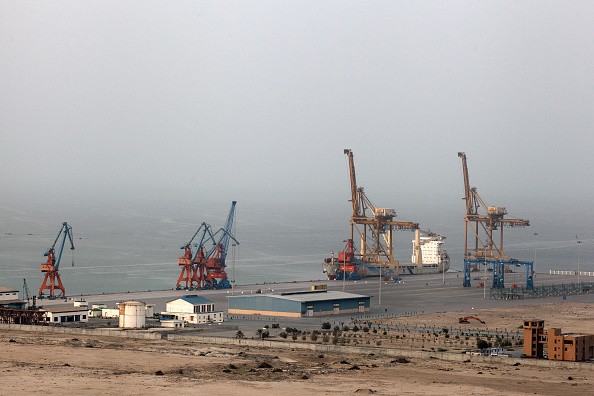Some Pakistani power firms are complaining that they are being shelved in the $57-billion China-Pakistan Economic Corridor (CPEC) projects and were not given the same advantage as other local and Chinese companies.
Reuters said in a report that Pakistani power firms are expecting to benefit from China's $36 billion investment in the Pakistani power sector, hoping to get a share from the huge "One Belt, One Road" (OBOR) project, China's modern-day "Silk Road" network of land and sea trade routes.
But according to some firms, the powers stations built for the CPEC project are already equipped with Chinese cables which are exempt from import duty and sales tax.
Kamal Amjad Mian, a local electricity cable supplier, told Reuters that exemption such as this, do not help local companies but instead undermine the industry.
"The government, instead of giving us a level playing field, gave them an advantage," Mian said.
A Water and Power Ministry official, who declined to be named, however, said that "there were question marks about whether the local cable industry could fulfill the demands under CPEC and we worried it would slow down projects."
China's huge investment in the CPEC has revived Pakistan's economy and drove a 5-percent growth for the first time since 2008.
Chinese investment in CPEC
Chinese investment has gained the support of people and the country's political parties as CPEC contracts were initially given to cement and steel companies, which are now expanding.
As some businessmen say that Chinese investors are set for an acquisitions spree in the country, some criticized the CPEC projects and doubted Pakistan's ability to repay the costs of the project.
Some companies are concerned about competing with Chinese companies, which have bigger capital and better financial backing.
"We have to make sure (CPEC) doesn't become a Trojan Horse and start hurting existing industry," Ehsan Malik, chief executive of the Pakistan Business Council, said.
The report, however, said that local companies can still join in several projects as the next phase of CPEC would involve the setting up of Special Economic Zones with factories established by China's state-owned enterprises to help Pakistan develop its industrial base.
Meanwhile, China moved to allay the fears of some sectors.
"The dividend, the well-being delivered by the corridor will benefit the people of both China and Pakistan, as well as of the region," Foreign Ministry spokeswoman Hua Chunying told a regular briefing on Pakistan.
On the other hand, the Pakistani government also reassured domestic producers.
Miftah Ismail, a state minister charged with setting up CPEC Special Economic Zones, said that they will give equal protection to both local and Chinese companies.
"I want to assure people we will never give greater protection to our Chinese investing friends," Ismail added. "It will never be an uneven playing field."
In January, the Pakistani government said domestic companies will be given priority over Chinese firms in the upcoming sell-off of state-run companies.



























